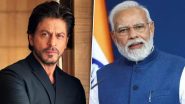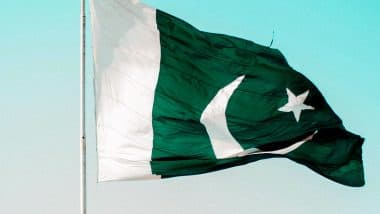Istanbul, January 18: Pakistan Air Force (PAF) Chief Marshal Mujahid Anwar Khan said that Pakistan and Turkey are "two countries, one nation" as the Imran Khan government desperately seeks to salvage its relations with Ankara amid deteriorating relations with middle east and gulf countries. According to Geo News, the Air Chief was addressing a meeting comprising board members of the Association of Justice Defenders and Strategic Studies Center (ASSAM) in Turkey on Friday.
The Air Chief said that Pakistan fully supports Turkey on Cyprus and other regional issues and also stands by Ankara in its war against terrorism. Pakistan's declining relations with its two biggest sources of foreign remittances and foreign exchange-- Saudi Arabia and the United Arab Emirates (UAE)-- is "bad news" for its already ailing economy, said scholar Salman Rafi Sheikh. Chinese Rescuers Find Note by Miners Trapped Underground in Shandong Province Since January 10, Saying They are Still Alive.
The Khan regime's tilt towards Turkey is reflected in his recent foreign policy choices, including its stated willingness to revive the dormant transnational rail service linking Istanbul, Tehran and Islamabad (ITI) in 2021.
The ITI transnational railroad is expected to enhance connectivity via China's Belt and Road Initiative (BRI) by providing a direct rail connection between China and Turkey via Iran. China's presence in the line's revival is of central importance.
In an opinion piece in Asia Times, Salman Rafi Sheikh said Pakistan is tentatively reorienting its foreign policy away from Saudi Arabia and the UAE towards China's New Silk Roads. Last August, Saudi Arabia asked Pakistan to repay early a USD 3 billion soft loan, Islamabad tried to defuse the tensions by quickly dispatching its current army chief General Qamar Javed Bajwa.
"While Pakistan tentatively expands its ties with Iran and Turkey, Saudi Arabia and the UAE have applied clear pressure on Pakistan's two biggest sources of foreign remittances at a delicate economic juncture, undermining - at least for now - Islamabad's ability to chart a truly independent and perhaps more forward-looking foreign policy," the scholar noted.













 Quickly
Quickly





















